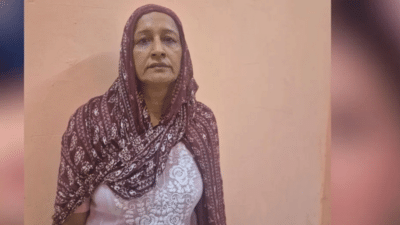
This marks an important medical collaboration between Samsung Medical Center (South Korea) and Hong Ngoc General Hospital, offering Vietnamese doctors access to advanced treatment models from one of Asia’s most developed healthcare systems.
|
The seminar gathered 20 leading oncology experts and 200 multidisciplinary doctors. Photo courtesy of Hong Ngoc General Hospital |
The symposium featured eight keynote speakers, all distinguished oncology experts from South Korea who conduct extensive research and directly develop treatment protocols for thousands of breast cancer patients each year.
Among them were prominent professors and researchers pivotal to breast cancer treatment, including Prof. Jeong Eon Lee, MD, PhD, Chairman of the Board, Korean Breast Cancer Society; Prof. Ji Hye Hwang, MD, PhD, Former President, Korean Society of Cancer Rehabilitation; and Prof. Jonghan Yu, MD, PhD, Division of Breast Surgery, Samsung Medical Center.
|
Eight leading oncology experts from South Korea and Vietnam served as speakers and chairs of the symposium. Photo courtesy of Hong Ngoc General Hospital |
Opening the symposium, Prof. Jeong Eon Lee, MD, PhD, FACS, Director of the Breast Cancer Center, Director of the Office of External Affairs, Samsung Medical Center, and Chairman of the Board, Korean Breast Cancer Society, presented data demonstrating remarkable progress in early detection and treatment of breast cancer in Korea.
According to Lee, up to 80% of breast cancer cases in Korea are detected at the DCIS stage (stage 0), with survival rates reaching 98–99%. Late-stage detections (stages 3 and 4) account for only a small fraction of cases. Regarding treatment, about two-thirds of patients undergo breast-conserving surgery, and notably, nearly 60% of mastectomy patients now receive immediate reconstruction after surgery.
 |
|
Professor Jeong Eon Lee shares statistics on the current state of breast cancer in South Korea. Photo courtesy of Hong Ngoc General Hospital |
Comparing this with Vietnam, Lee noted that while the breast cancer incidence rate is lower in Vietnam, mortality rates are higher. “This is precisely why we are here to collaborate with and support Vietnam’s medical community in improving the effectiveness of breast cancer treatment,” he said.
He emphasized the importance of comprehensive screening programs and multidisciplinary treatment as part of a holistic breast cancer management model: “We believe that multidisciplinary consultations not only improve treatment effectiveness but also help all patients access personalized treatment plans, tailored to their specific disease stage and circumstances.”
Professor Jeong Eon Lee speaks at the symposium. Video courtesy of Hong Ngoc General Hospital
Following Lee’s presentation, Korean experts offered in-depth insights into various aspects of breast cancer management.
In diagnostic imaging, Assoc. Prof. Ji Soo Choi, MD, PhD (Department of Radiology and Center for Imaging Science, Samsung Medical Center) highlighted the critical role of MRI, mammography, and ultrasound enhanced with artificial intelligence.
This integration helps doctors detect small lesions, enabling accurate treatment planning, improving recovery chances, and reducing patient complications.
 |
|
Assoc. Prof. Ji Soo Choi, MD, PhD, highlights the importance of imaging tools in diagnosing breast cancer. Photo courtesy of Hong Ngoc General Hospital |
In surgical care, Prof. Jonghan Yu, MD, PhD, Chair of Division of Breast Surgery, Samsung Medical Center, presented current trends emphasizing techniques that preserve a patient’s body image. Several of these approaches have already been implemented at Hong Ngoc General Hospital, offering long-term benefits for patients.
Advancements in systemic therapy, radiotherapy, breast reconstruction, and rehabilitation were also discussed, shaping a comprehensive, long-term breast cancer management process. This model supports early detection and targeted treatment while improving patients’ quality of life and helping them maintain daily activities—a critical insight for Vietnam in developing a holistic care system rather than focusing solely on treatment.
The symposium provided clinical treatment insights and lessons in healthcare system development. Through collaboration with Samsung Medical Center, Hong Ngoc General Hospital is leveraging multidisciplinary strengths to build a high-quality workforce and modern equipment system, aiming to develop an oncology department that meets international standards.
-
Raveena Tandon: Our pets are the heartbeat of our home

-
Noida dowry murder: Mother-in-law arrested, husband sent to 14-day custody

-
ED investigates NRI quota admissions in medical colleges in West Bengal, Odisha

-
March of silver: Rs 2 lakh summit new target, indicate experts

-
Two arrested for stealing communications cables

